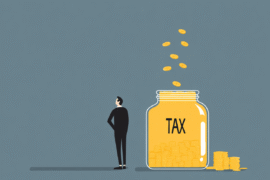This article may contain references to products or services from one or more of our advertisers or partners. We may receive compensation when you click on links to those products or services. Nonetheless, our opinions are our own.
The information presented in this article is accurate to the best of our knowledge at the time of publication. However, information is subject to change, and no guarantees are made about the continued accuracy or completeness of this content after its publication date.
- Introduction
- Why Lease Negotiation Matters
- Rent Price
- Lease Duration
- Security Deposit
- Utilities Included
- Maintenance Responsibilities
- Pet Policy
- Subletting Rights
- Renewal Terms
- Right of Entry
- Parking Arrangements
- Amenities and Access
- Early Termination Clause
- Guest Policies
- Notice Period for Moving Out
- How to Approach Lease Negotiations
- FAQs
- Closing Remarks
- Recommended Reads
Introduction
Signing a lease is exciting, but it can also feel overwhelming once you see the fine print. Those clauses influence your rent, responsibilities, and daily living experience. The good news is that many terms are negotiable if you know how to ask.
Why Lease Negotiation Matters
A lease is more than a rent agreement; it is a legally binding contract that sets expectations for both parties. Clear negotiation upfront helps prevent misunderstandings about payments, repairs, and access. It also creates flexibility if your plans change and reduces the chance of surprise fees or restrictions later. By treating the lease like any other contract, you protect your rights and set the relationship on the right footing. Strong terms today can prevent costly disputes tomorrow.
Rent Price
Rent is often negotiable, especially if similar units nearby are listed for less. Bring recent market comparisons to justify your request and show you have done your homework. Consider offering a longer lease, a quicker move-in date, or autopay enrollment to sweeten the deal. Even a modest reduction adds up over a year and can improve your monthly budget. Aim for a number that is competitive yet realistic for the property and location.
Lease Duration
If you are not ready to commit for a full year, negotiate a shorter term with an option to renew. This provides flexibility without risking the loss of your home if you decide to stay. Landlords often prefer predictability, so propose clear renewal timelines and notice dates. You can also ask for a capped rent increase at renewal to avoid surprises. A balanced duration supports both stability and adaptability.
Security Deposit
Ask whether the deposit can be reduced based on strong credit, steady income, or excellent references. If the full amount is required, see if you can pay in installments to ease move-in costs. Could you please clarify the conditions for deductions and the timeline for the refund after moving out? Request an itemized checklist for move-ins and move-outs to document unit conditions. Clear rules reduce disputes and help you recover your deposit promptly.
Utilities Included
Please verify which utilities are included, such as water, electricity, trash, gas, or internet, and which are not. If none are included, negotiate to bundle at least one utility to stabilize monthly expenses. Ask how usage is measured, especially for shared meters or ratio billing systems. Request average historical costs to estimate your total monthly outlay. Transparent utility terms prevent bill shock and help you budget accurately.
Maintenance Responsibilities
Repairs are a common source of conflict when roles are unclear. Define who handles routine tasks like lightbulbs and air filters versus major items like plumbing or HVAC. If you agree to minor upkeep, ask for a rent concession or a simple reimbursement process. Set reasonable timelines for response and completion of work orders. Documenting expectations keeps the home safe and avoids frustration later.
Pet Policy
Pet rules vary, but many landlords are open to adjustments for responsible owners. Please submit vaccination records, training certificates, or references from prior rentals to support your request. Negotiate pet deposits, monthly pet rent, or breed and size restrictions where appropriate. Clarify cleaning standards and end-of-lease expectations to protect your deposit. A thoughtful proposal can turn a tentative “no” into a workable “yes.”
Voted "Best Overall Budgeting App" by Forbes and WSJ
Monarch Money helps you budget, track spending, set goals, and plan your financial future—all in one app.
Get 50% OFF your first year with code MONARCHVIP
Subletting Rights
Life changes happen, and subletting can be a safety valve that prevents a broken lease. Ask for a clause that allows subletting with landlord approval and reasonable screening. Please outline the approval timeline and any administrative fees to help prevent delays. Ensure that you remain responsible for the unit and maintain trust with your landlord. Clear subletting terms provide flexibility without exposing the owner to undue risk.
Renewal Terms
Prevent sudden price jumps by agreeing on renewal mechanics up front. Request a renewal option with a specific notice period and a predefined increase or cap. Clarify whether improvements or market changes could affect the renewal rate. Please ensure the renewal process and deadlines are documented in writing to prevent either party from missing an important date. Predictability helps you plan and prevents last-minute pressure.
Right of Entry
Set boundaries for when the landlord or maintenance may enter your home. Most jurisdictions require reasonable advance notice, commonly 24 to 48 hours, except in emergencies. Specify acceptable visit hours and the method of notice, such as text or email. Ask for entries to be documented to maintain a clear record. Privacy terms that are clear and respectful protect everyone involved.
Parking Arrangements
Please ensure you review parking options, as availability may be limited and costs can be high, before finalizing your decision. Please verify the availability, location, and whether the spaces are assigned or on a first-come, first-served basis. Ask about fees, guest parking rules, and towing policies to avoid unpleasant surprises. If supply is tight, negotiate for a reserved space or a rate lock for the term. Reliable parking improves daily convenience and can justify your rent.
Amenities and Access
Amenities like a gym, pool, coworking lounge, or rooftop add value only if they are accessible. Please verify the hours, rules, guest policies, and any separate fees or deposits. If amenities are unavailable during renovations, request a rent credit until they reopen. Ask how maintenance issues and closures are communicated to residents. Clear access terms ensure you get what was advertised and paid for.
Early Termination Clause
Request a fair exit option to manage unexpected moves for work, health, or family reasons. A fixed early termination fee or a relocation clause can limit your financial exposure. Define the required notice, marketing cooperation, and any reletting costs. Please ensure the clause addresses common scenarios you might realistically encounter. Planning now can save thousands should circumstances change.
Guest Policies
Many leases limit how long guests may stay before they are considered occupants. Clarify time limits, registration requirements, and parking rules for visitors. If you anticipate extended stays, propose a reasonable accommodation and timeline. Be sure the policy balances security with practical living needs. Transparent rules prevent conflict and maintain a respectful community.
Notice Period for Moving Out
Standard notice is often 30 to 60 days, but you can request a shorter period if needed. Align the notice window with your job cycle or school calendar for smoother planning. Define how notice must be delivered and acknowledged to avoid disputes. Inquire if the notice can coincide with a move-out date that does not fall at the end of the month. Precision here avoids extra rent and last-minute stress.
How to Approach Lease Negotiations
- Research: Compare recent local listings, incentives, and typical lease terms so you anchor your requests to data.
- Tone: Be professional and solution-oriented, positioning yourself as a reliable, low-risk tenant.
- Trade-offs: Offer longer terms, faster move-in, or autopay to unlock concessions that matter most to you.
- Documentation: Put every agreed change in writing and attach it to the signed lease to avoid ambiguity.
FAQs
Why should I negotiate a lease?
Negotiation clarifies responsibilities, reduces costs, and aligns terms with how you actually live. It also lowers the risk of disputes during your tenancy.
Which lease terms are most often overlooked?
Tenants frequently miss utilities, maintenance expectations, renewal mechanics, parking details, and guest rules. Addressing these items prevents surprises later.
How do I negotiate rent effectively?
Bring local comps, highlight reliability, and offer reasonable trade-offs like a longer term. Aim for a fair, data-backed number rather than a lowball.
Are pet policies negotiable?
Yes, many landlords will adjust deposits or pet rent for responsible owners. References and training records strengthen your case.
What notice period should I expect for moving out?
Thirty to sixty days is common, but shorter windows are sometimes negotiable. Specify delivery method and acknowledgment to keep things clear.
Closing Remarks
Lease negotiation is simply careful planning applied to your housing decision. By addressing these fourteen terms before you sign, you gain fairness, predictability, and financial control. Clear documentation and respectful communication build trust with your landlord and reduce future friction. With data, tact, and written agreements, you can secure terms that truly support your goals. Approach the lease like any important contract and you will set yourself up for a smooth tenancy.

Reviewed and edited by Albert Fang.
See a typo or want to suggest an edit/revision to the content? Use the contact us form to provide feedback.
At FangWallet, we value editorial integrity and open collaboration in curating quality content for readers to enjoy. Much appreciated for the assist.
Did you like our article and find it insightful? We encourage sharing the article link with family and friends to benefit as well - better yet, sharing on social media. Thank you for the support! 🍉
Article Title: How to Negotiate Lease Terms Before Signing
https://fangwallet.com/2025/08/22/how-to-negotiate-lease-terms-before-signing/The FangWallet Promise
FangWallet is an editorially independent resource - founded on breaking down challenging financial concepts for anyone to understand since 2014. While we adhere to editorial integrity, note that this post may contain references to products from our partners.
The FangWallet promise is always to have your best interest in mind and be transparent and honest about the financial picture.
Become an Insider

Subscribe to get a free daily budget planner printable to help get your money on track!
Make passive money the right way. No spam.
Editorial Disclaimer: The editorial content on this page is not provided by any of the companies mentioned. The opinions expressed here are the author's alone.
The content of this website is for informational purposes only and does not represent investment advice, or an offer or solicitation to buy or sell any security, investment, or product. Investors are encouraged to do their own due diligence, and, if necessary, consult professional advising before making any investment decisions. Investing involves a high degree of risk, and financial losses may occur including the potential loss of principal.
Source Citation References:
+ Inspo
There are no additional citations or references to note for this article at this time.












































